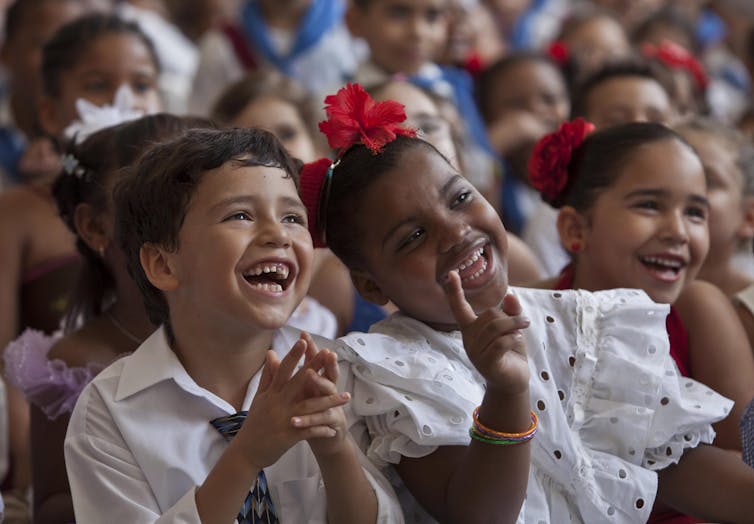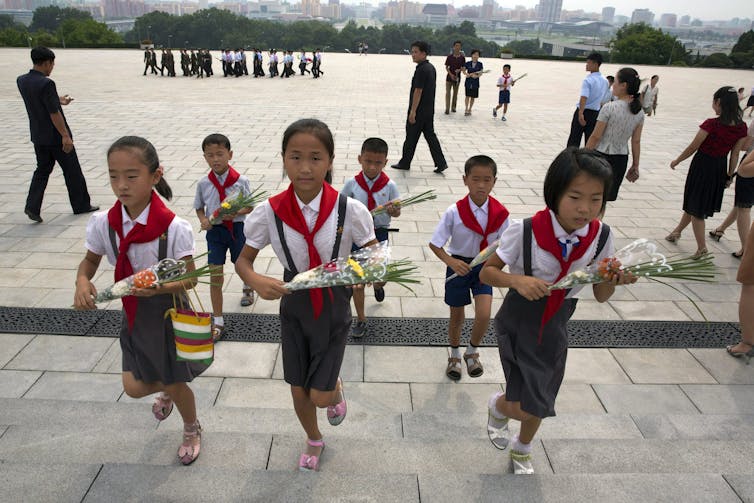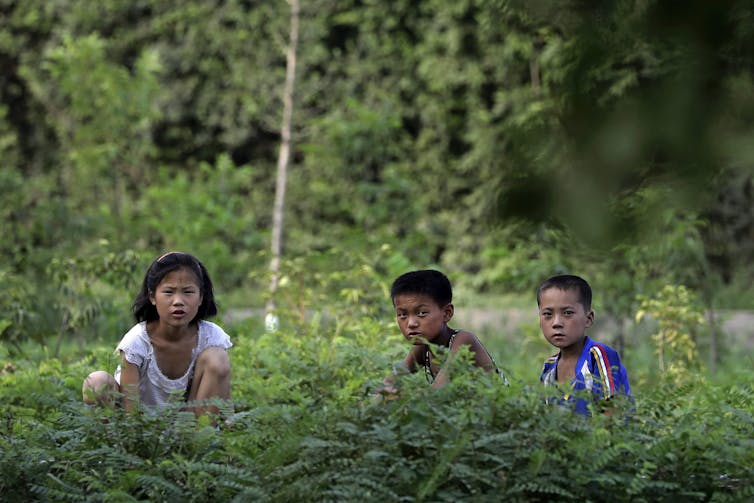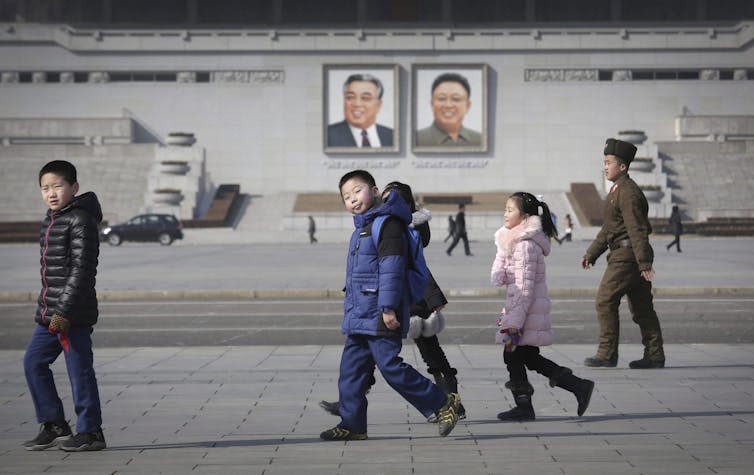This article was originally published on The Conversation, which features includes relevant and informed articles, written by researchers and academics in their areas of expertise and edited by experienced journalists.
Robert Huish is Associate Professor in International Development Studies at Dalhousie University. Peter Steele is a graduate student at Dalhousie University.
Kim Jong Un, North Korea’s tyrannical leader, recently “reaffirmed historic ties” with Miguel Diaz-Canel, Cuba’s president.
Diplomacy between Cuba and North Korea is odd. Late Cuban president Fidel Castro only once visited Kim Il Sung, North Korea’s eternal leader, in 1986.
While he spoke highly of some aspects of the regime, Kim’s cult of personality, for Castro, went too far. He saw the forced worship of Kim Il Sung as smacking of Stalinist brutality, not socialist progress.
The friendship between Kim and Diaz-Canel is worrisome. While U.S. President Donald Trump’s “casino diplomacy” with Kim Jong Un came as a result of an escalating security crisis, Cuba and North Korea are supposed to share values as socialist republics. And yet their brands of socialism are worlds apart.
Read more: Casino Diplomacy: The Trump game that everyone loses
One profound difference is how they treat their children.
In Cuba, children are the most valued and protected members of society. Access to food, health, education, stable families and even culture, sport and play are venerated foundations of Cuban society.

In North Korea, children face an Orwellian nightmare. North Korea is in a league of its own when it comes to the abuse of children.
So much divergence calls into question how the Cubans can maintain solidarity with a country that abhors Cuba’s core values.
Belittling, intimidating kids
The Korean Children’s Union, a mandatory union for children aged nine to 15, is not designed to nurture or inspire its members through friendship, camaraderie or duty. It is meant to belittle, to intimidate and to instil the belief that the supreme leader is all-powerful.
It rigorously instructs children that to be an individual is meaningless. No child is unique. Each one is just like the other. Replaceable, disposable and ultimately worthless.
Don’t be fooled by photos of Kim Jong Un smiling arm and arm with ecstatic children. Childhood in North Korea is rife with hunger, fear and abuse.

From the testimony of numerous defectors, we know that children are taught by the government to love the supreme leader more than their own parents. Mom and Dad are responsible for the basics, but it is the leader who provides in every way. Sound like a cult? It is.
Juche is North Korea’s official ideology meant to drive the nation towards true socialism. It demands obedience, submission and designated struggle for the benefit of the nation. It creates a deranged cult of personality of the Kims to convince children not to think for themselves, but to think “through the leader.”
It begins with nursery rhymes. Many give fawning praise and boisterous credence to Kim Il Sung, the eternal leader of North Korea, along with his direct descendants Kim Jong Il and Kim Jong Un. Yet other songs are chock-full of lyrics about killing “Japanese dogs” and dismembering “American bastards.”
The worship of one man
In their earliest days of song and speech, children learn to worship one man, prepare for revenge against the country’s enemies and abandon the sanctity of childhood — all through a barrage of violence and vulgarity.
For those deemed “wavering” or “hostile” by the North Korean government, which categorizes citizens based on political loyalty, the psychological abuse intensifies.
While still forced to show audacious affection to the Dear Leader, teachers and police remind children that their only value in life will be service to the leader through exhausting work.
For the lowest rungs of society, childhood turns to horror. Food is minimal and malnutrition rampant. Stories emerge of roving children near the Chinese border who, abandoned by their parents, live a roaming existence in collectives in search of food and warmth.

One child was found crossing the Chinese border in the middle of winter with terrible burns to his bare feet. Trying to stay warm, he knocked over a kerosene lamp that ignited his shoes. Such are the brutal sacrifices of young people, shunned by their nation and forgotten by the world.
Defector testimony presented to the United Nations Commission of Inquiry into Human Rights Abuses in North Korea include stories of male and female political prisoners, some with no previous contact, forced into conjugal visits while in captivity.
North Korea demands three generations of punishment for those hostile to the regime. If a child is born into this plight, they will live a life starved and physically worked to absolute exhaustion in the camps.
Robbed of humanity
North Korea’s abuse is systematic, with dangerous implications for enduring trauma at the very genesis of childhood. Weaponizing youth through mandatory juvenile conscription goes beyond violating international edicts. It robs its children of humanity.
It is not done by accident, nor by consequence of a catastrophic event. Dehumanizing compatriots, including children, is a carefully scripted policy. Bureaucrats engineer it, soldiers implement it, and Kim Jong Un oversees it with impunity.

North Korea militarizes children through conformity, intimidation and degradation.
Meanwhile, Cuba is committed to ensuring the rich experiences of childhood. Diplomatic protocol aside, for Cuba to hold hands with the leader of a nation that denigrates children to such levels is repugnant.
The Korean Children’s Union, and other tenets of Juche, must be dismantled if North Korea is to enter the global community. North Korea’s closest allies, including Cuba, have a role in making sure that happens.![]()
Read the original article on The Conversation.
Dalhousie University is a founding partner of The Conversation Canada, an online media outlet providing independent, high-quality explanatory journalism. Originally established in Australia in 2011, it has had more than 85 commissioning editors and 30,000-plus academics register as contributors. A full list of articles written by Dalhousie academics can be found on the Conversation Canada website.

